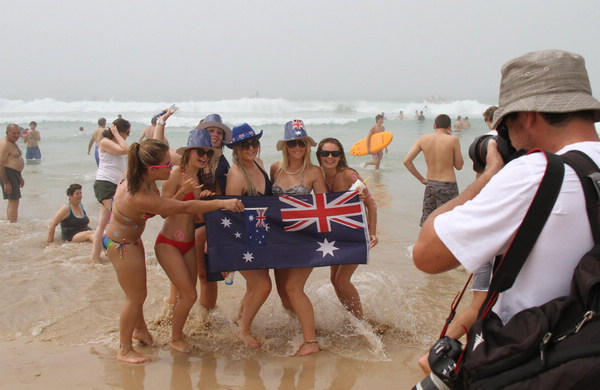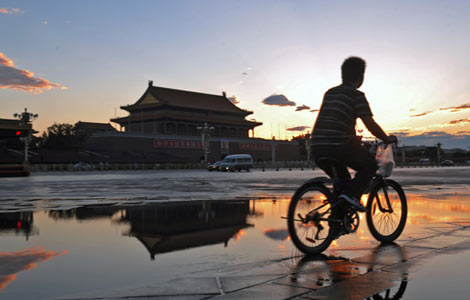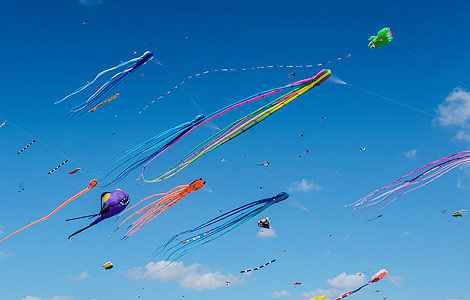Australia: Since the 16th century, Europeans began exploring Australia. Dutch navigators were first then followed by British pirate William Dampier. In 1770, Captain James Cook sailed along the entire east coast and anchored at Botany Bay. He announced the new continent for Great Britain and named it New South Wales. In 1779, Joseph Banks (a naturalist on Cook’s ship) suggested the British government exile its convicts to the continent to solve their prison overcrowding problem. In 1787, the First Fleet under the command of Arthur Phillip carrying about 750 prisoners set sail for Botany Bay. The fleet arrived in January 1788, but soon northbound to Sydney Cove which had better land. A camp was established and the flag raised at Sydney Cove, Port Jackson, on January 26, 1788, which is Australia's national day. During the following 80 years, about 160,000 prisoners were transported to Australia from the UK.
Although it was not known as Australia Day until over a century later, records of celebrations on 26 January date back to 1808, with the first official celebration of the formation of New South Wales held in 1818. It is marked by the presentation of the Australian of the Year Awards on Australia Day Eve, announcement of the Australia Day Honours list and addresses from the Governor-General and Prime Minister. It is an official public holiday in every state and territory of Australia, unless it falls on a weekend in which case the following Monday is a public holiday instead. With community festivals, concerts and citizenship ceremonies, the day is celebrated in large and small communities and cities around the nation. Australia Day has become the biggest annual civic event in Australia.

Australia Day celerated in Melbourne


 Other measures for the capital to become green
Other measures for the capital to become green
 Working group to discuss sea issues
Working group to discuss sea issues
 Draft regulation raises fines for polluters
Draft regulation raises fines for polluters
 Djokovic retains Shanghai Masters title
Djokovic retains Shanghai Masters title
 Colombian takes wingsuit crown
Colombian takes wingsuit crown
 Vietnam buries heroic general
Vietnam buries heroic general
 Road to clean air starts with new energy vehicles
Road to clean air starts with new energy vehicles
 Kite festival held in E. China
Kite festival held in E. China














